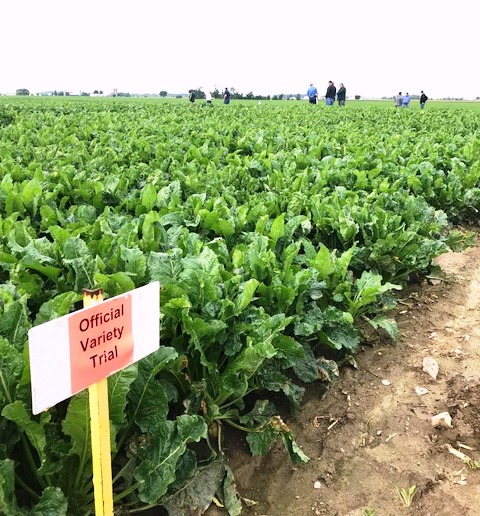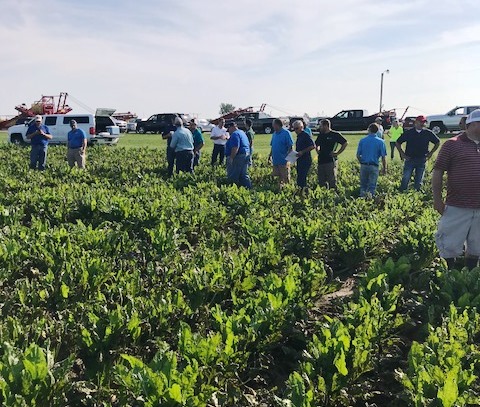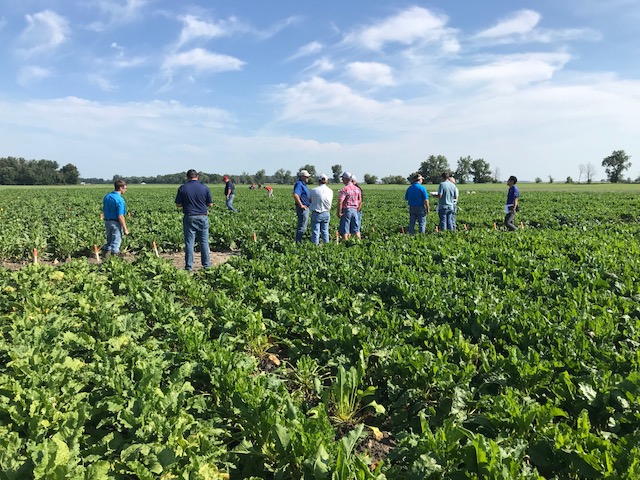2018 Official Sugarbeet Variety Trial Tours
Each sugarbeet growing area in the USA annually conducts official sugarbeet variety trial tours. These tours allow the sugarbeet breeders to tour each growing area to visually evaluate varieties they have developed while assessing the quality of research trials in various regions. Depending on the production area, sugarbeet variety trial tours generally last one to three days.
Importance of Sugarbeet Variety Trial Tours
The industry should never underestimate the importance of these annual tours. Because of these tours, sugarbeet breeders are better able to monitor the progress of their breeding programs, interact with local agronomist and researchers so they remain updated on current beet issues that may change a breeder’s emphasis so that they may incorporate specific traits when developing new varieties. Releasing a new variety may take anywhere between four and up to ten years of field trials.

2018 Sugarbeet Variety Trial Tour Overview
The Michigan Official Sugarbeet Variety tour this year included twelve research locations including both variety and disease trials. Michigan Sugar Company variety approval program utilizes a five-year plan to achieve goals. The program gives sugarbeet breeders time to develop varieties that can achieve the goals set by the seed committee. Michigan Sugar variety testing program is quite extensive. A total of eight official variety trials take place throughout the growing region. Each trial includes 42 varieties from five different seed companies. They also conduct nursery trials that include: three Cercospora leafspot, two Rhizoctonia and a sugarbeet cyst nematode trial. Simultaneously, contract research with outside nurseries takes place so that they may further study field issues such as; Rhizomania, Aphanomycetes, Root Aphid and Fusarium.

Cercospora Leafspot Trial
Unique to Michigan, once a new variety is approved, and commercial seed is available the Sugarbeet Advancement program conducts second-tier testing utilizing strip trials. This program has seven strip trial locations that include twelve of the newest varieties. These trials are all conducted in grower fields utilizing grower management and equipment. Trials are harvested with grower equipment utilizing truck weights or beet carts with digital scales. Many times these trials will have more disease and increased stressed environments compared to an official variety trial. Combining the results of these trials with official trials gives growers another piece of information when determining a variety’s overall performance.

The combined efforts of USDA-ARS basic research programs and seed company breeders have steadily improved variety performance. Sugarbeet breeders have done an excellent job in responding and meeting the challenges in each growing region. Sugar content, yields, and disease resistance have been significantly improved in the last 15 years. Breeding efforts incorporating genetic resistance have significantly minimized the effects of issues such as Rhizomania, root aphid, and cyst nematodes. Official variety testing programs conducted by sugar companies perform a critical role in providing a non-biased evaluation on variety performance.
